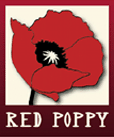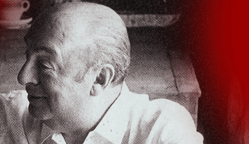|
Sí,
camarada, es hora de jardín
Sí, camarada, es hora de jardín
y es hora de batalla, cada día
es sucesión de flor o sangre:
nuestro tiempo nos entregó amarrados
a regar los jazmines
o a desangrarnos en una calle oscura:
la virtud o el dolor se repartieron
en zonas frías, en mordientes brasas,
y no había otra cosa que elegir:
los caminos del cielo,
antes tan transitados por los santos,
están poblados por especialistas.
Ya desaparecieron
los caballos.
Los héroes
van vestidos de batracios,
los espejos viven vacíos
porque la fiesta es siempre en otra parte,
en donde ya no estamos invitados
y hay pelea en las puertas.
Por eso es
éste el llamado penúltimo,
el décimo sincero
toque de mi campana:
al jardín, camarada, a la azucena,
al manzano, al clavel intransigente,
a la fragancia de los azahares,
y luego a los deberes de la guerra.
Delgada es nuestra patria
y en su desnudo filo de cuchillo
arde nuestra bandera delicada.
|
Right,
comrade, it’s the hour of the garden
Right, comrade,
it’s the hour of the garden
and the hour up in arms, each day
follows from flower or blood:
our time surrenders us to an obligation
to water the jasmines
or bleed to death in a dark street:
virtue or pain blows off
into frozen realms, into hissing embers,
and there never was a choice:
heaven’s roads,
once the by-ways of saints,
are jammed now with experts.
Already the
horses have vanished.
Heroes hop
around like toads,
mirrors live out emptinesses
because the party is happening somewhere else,
wherever we aren’t invited
and fights frame themselves in doorjambs.
That’s
why this is the last call,
the tenth clear
ringing of my bell:
to the garden, comrade, to the pale lily,
to the apple tree, to the intransigent carnation,
to the fragrance of lemon blossoms,
and then to the ultimatums of war.
Ours is a lank
country
and on the naked edge of her knife
our frail flag burns.
—Translated and © Forrest Gander 2004, from City Lights' The Essential Neruda
|






